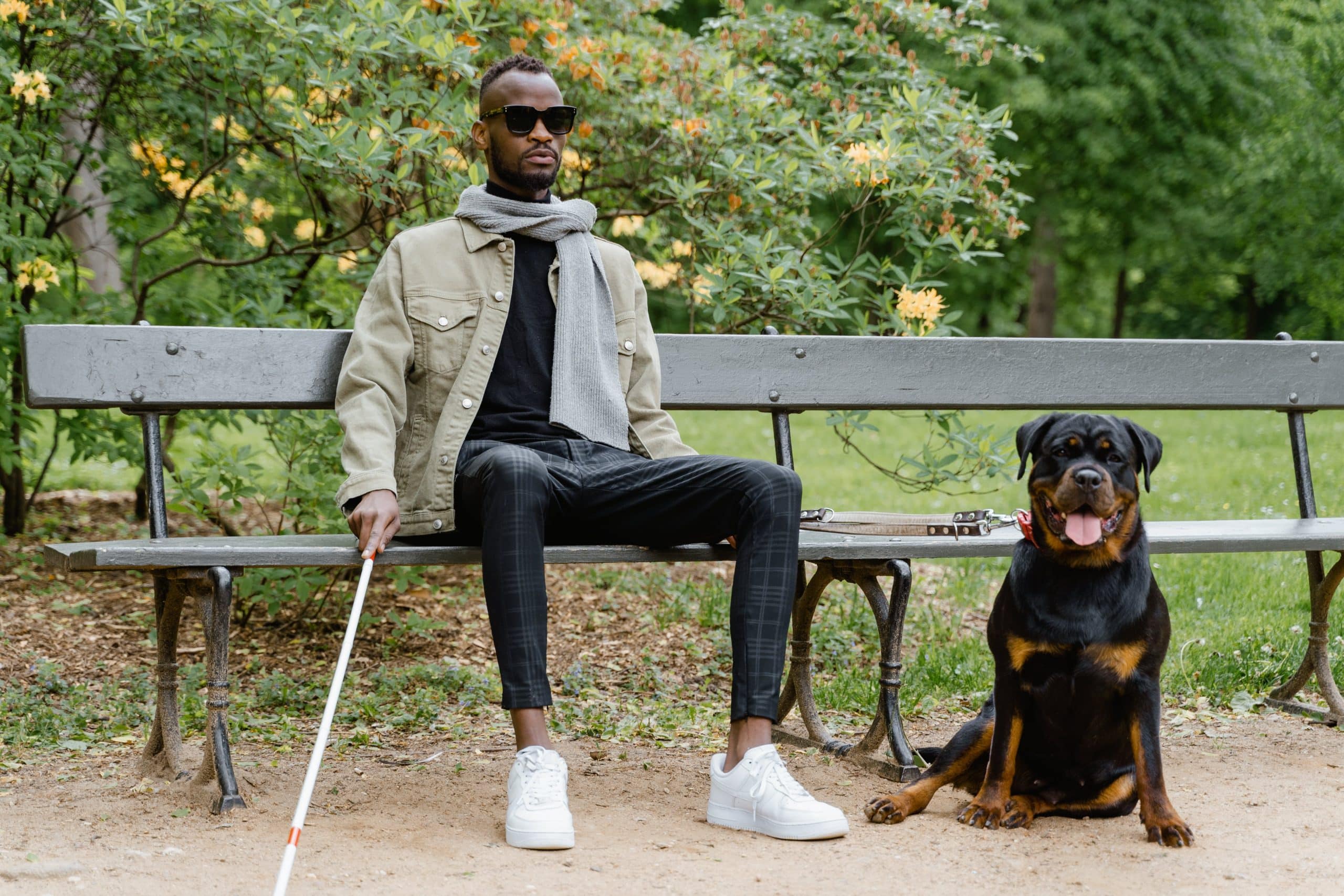Are you a proud dog owner? If so, then you already know how important it is for your furry companion to be well-behaved and comfortable in different situations. That's why socialization training plays a crucial role in ensuring your dog's overall development. By exposing them to various environments, people, and animals, you are helping them become more confident, friendly, and adaptable. In this article, we will explore the significance of socialization training for your dog and how it can positively impact their behavior and well-being. So, whether you have a new furry addition to your family or want to enhance your dog's social skills, read on to discover the benefits of this essential training technique.
The Benefits of Socialization Training
Socialization training is an essential aspect of raising a well-behaved and happy dog. It involves exposing your furry friend to various people, animals, and environments to help them develop appropriate social skills. The benefits of socialization training are numerous and can greatly enhance your dog's behavior, reduce fear and anxiety, increase confidence, and improve adaptability.
Improved Behavior
One of the key benefits of socialization training is improved behavior. By exposing your dog to different situations from an early age, they learn how to behave appropriately in various contexts. They become more comfortable and confident when encountering new people, animals, and environments. This training can prevent behavioral problems such as fear aggression, separation anxiety, and excessive barking.
Reduced Fear and Anxiety
Socialization training plays a crucial role in reducing fear and anxiety in dogs. When they are exposed to new experiences in a positive and controlled manner, they learn that the world is not a scary place. By gradually introducing your dog to different people, animals, and environments, you can help them overcome their fears and build confidence. This training is especially important for rescue dogs or those with a history of trauma.
Increased Confidence
Socialization training helps to boost your dog's confidence. By gradually exposing them to new experiences, they become more confident in their ability to handle different situations. Confidence allows dogs to navigate various environments with ease and reduces their likelihood of becoming reactive or fearful. With increased confidence, your dog will be more relaxed and comfortable in social settings, making them a joy to be around.
Enhanced Adaptability
Another benefit of socialization training is enhanced adaptability. Dogs that have been well-socialized are better able to handle changes and transitions in their lives. They are more adaptable to new environments, such as moving to a new home or traveling to unfamiliar places. This adaptability can greatly reduce stress and make transitions smoother for both you and your furry friend.
When to Start Socialization Training
Socialization training should ideally start early in your dog's life, during the critical period known as puppyhood. This phase lasts from approximately 3 to 14 weeks of age and is when puppies are most receptive to new experiences. However, socialization training is not limited to puppies and can be beneficial for dogs of all ages, including adolescents and adult dogs.
Early Puppyhood
During early puppyhood, it is crucial to expose your puppy to as many positive experiences as possible. This is the time when their brain is rapidly developing and they are forming impressions about the world around them. Introduce your puppy to new people, animals, and environments in a gentle and controlled manner, ensuring positive associations and experiences. Enrolling in puppy socialization classes under the guidance of a professional trainer can be extremely helpful during this phase.
Adolescence
Adolescence is a stage when dogs experience hormonal and behavioral changes. This is also a critical period for further socialization training. The foundation laid during early puppyhood needs reinforcement and continued exposure to different situations. Positive experiences during adolescence can help prevent the development of behavioral issues and ensure a well-adjusted adult dog.

This image is property of images.pexels.com.
Adult Dogs
While socialization training is most effective during puppyhood and adolescence, it is still beneficial for adult dogs. Dogs that have not received proper socialization in their early years can still learn how to interact with people, animals, and new environments. It may require more time and patience, but with consistency and positive reinforcement, adult dogs can develop the social skills necessary for a happier and more fulfilling life.
The Importance of Positive Experiences
When it comes to socialization training, creating positive experiences is paramount. Positive experiences help to build a positive association with new people, animals, and environments, making them more enjoyable for your dog. There are several ways to ensure positive experiences during socialization training, including creating a positive association, using positive reinforcement, and implementing reward-based training.
Creating a Positive Association
To create a positive association, it is important to pair new experiences with positive rewards. For example, if you are introducing your dog to a new person, have that person offer a tasty treat or engage in playtime. This association helps your dog see new people as a source of positive experiences rather than something to be afraid of. The same principle applies to introducing your dog to new animals and environments.
Positive Reinforcement
Positive reinforcement is a key component of socialization training. Reward your dog for desired behaviors, such as calm interactions with new people or animals. This can be done using treats, praise, or playtime. By rewarding positive behavior, you are reinforcing the idea that good things happen when your dog is social and friendly. Positive reinforcement helps build confidence and motivates your dog to continue engaging in positive social interactions.
Reward-Based Training
Implementing reward-based training techniques is an effective way to promote positive experiences during socialization training. Instead of focusing on correcting unwanted behaviors, reward-based training emphasizes rewarding desired behaviors. This positive approach encourages your dog to actively participate in the training process. By using treats, toys, or praise to reward your dog's good behavior, you can effectively shape their social skills and create a strong bond based on trust and positive experiences.
Introducing Your Dog to New People
It is essential to introduce your dog to different types of people during socialization training. Exposing them to a variety of individuals helps them become comfortable around different ages, genders, and personalities. It is important to approach these introductions gradually and with consideration for your dog's comfort level.
Family Members and Friends
Start by exposing your dog to immediate family members and close friends. These individuals are already known to your dog and can serve as a safe introduction to the concept of meeting new people. Allow your dog to approach at their own pace and reward them with treats and praise for calm and friendly behavior.
Strangers and Unfamiliar Faces
Once your dog is comfortable meeting familiar people, gradually introduce them to strangers and unfamiliar faces. This can be done in controlled environments, such as on walks or in a park. Always prioritize your dog's safety and comfort by keeping them on a leash and monitoring their reactions. Reward your dog for positive interactions and gradually increase the level of exposure to different individuals.

This image is property of images.pexels.com.
Children and Seniors
It is important for your dog to be comfortable around children and seniors, as they may encounter them frequently in their daily lives. When introducing your dog to children, ensure a calm and supervised environment. Teach children how to approach and interact with dogs appropriately. Similarly, introduce your dog to seniors in a gentle and controlled manner, as they may have specific needs or mobility limitations. Reward your dog for calm and friendly behavior around children and seniors.
Exposing Your Dog to Different Animals
Socialization training should also include exposure to different types of animals. This helps your dog learn appropriate behaviors when interacting with other species and promotes positive interactions.
Other Dogs
Exposing your dog to other dogs is an important aspect of socialization training. It allows them to develop appropriate social skills and learn how to communicate effectively with their canine counterparts. Start by introducing your dog to friendly and well-socialized dogs in controlled environments, such as dog parks or supervised playdates. Gradually increase the complexity of these interactions as your dog becomes more comfortable.
Cats and Small Pets
If you have cats or small pets at home, it is crucial to introduce them to your dog in a positive and controlled manner. Start by allowing them to observe each other from a safe distance and gradually decrease the separation. Supervise all interactions closely to ensure the safety of both your dog and the smaller animals. Reward your dog for calm and gentle behavior around cats and small pets to reinforce positive associations.
Farm Animals and Wildlife
In some cases, dogs may encounter farm animals or wildlife in their surroundings. Introducing your dog to these types of animals can help them understand appropriate behavior in their presence. It is important to prioritize safety and ensure that interactions are controlled and supervised. Gradual exposure to farm animals and wildlife can help your dog develop appropriate responses and minimize any potential prey drive.
Getting Your Dog Used to Various Environments
Socialization training also involves exposing your dog to different environments. This helps them become comfortable and confident in various settings, reducing anxiety and improving adaptability.
Indoor Environments
Start by introducing your dog to different areas within your home. Allow them to explore at their own pace and reward them with treats and praise for calm and relaxed behavior. Gradually increase the complexity of the indoor environments by introducing various stimuli, such as different flooring surfaces, stairs, or household appliances. The goal is to help your dog feel at ease and confident in any indoor setting.
Outdoor Environments
Outdoor environments provide a whole new set of stimuli for your dog to experience. Begin by taking your dog on walks in familiar, low-stress areas. As they become more comfortable, gradually expose them to different outdoor environments, such as parks, streets, and hiking trails. Allow your dog to sniff and explore their surroundings while keeping them on a leash for safety. Reward calm and confident behavior to reinforce positive experiences.

This image is property of images.pexels.com.
Busy Public Places
It is important for your dog to be comfortable in busy public places, such as shopping areas or city streets. Expose them to these environments gradually, starting with quieter areas and gradually progressing to more crowded spaces. Provide positive reinforcement for calm and confident behavior, and ensure your dog feels safe and secure in these situations. This training allows your dog to accompany you on outings without fear or anxiety.
Socialization Training and Aggression
Socialization training can be particularly useful in preventing and managing aggression issues in dogs. By exposing them to various stimuli and teaching appropriate responses, you can minimize the likelihood of aggressive behavior.
Preventing Aggression
Proper socialization from an early age helps prevent the development of aggression in dogs. By gradually introducing your dog to new experiences and rewarding positive behavior, you can prevent them from becoming fearful or reactive. Expose your dog to different people, animals, and environments, and ensure positive associations are formed. Early prevention is key to raising a well-adjusted and non-aggressive dog.
Managing Aggression
If your dog already exhibits aggressive behavior, socialization training can still be beneficial. Consult with a professional trainer or behaviorist to develop a tailored plan for managing aggression. This may involve desensitization and counterconditioning techniques to help your dog overcome their triggers and develop more appropriate responses. With consistent training and the guidance of a professional, you can help your dog manage and reduce their aggression.
Addressing Aggression Issues
In some cases, aggression issues may require more specialized training. Seeking professional help is essential to address aggression effectively. A professional trainer or behaviorist can assess your dog's specific needs and develop a comprehensive training plan. They will guide you through the process of addressing aggression issues, ensuring the safety of both your dog and those around them. With patience, understanding, and the right guidance, many dogs can overcome their aggression and lead happy, well-balanced lives.
Building Confidence and Communication Skills
Socialization training plays a significant role in building your dog's confidence and improving their communication skills. By incorporating specific exercises and teaching basic commands, you can enhance their overall social abilities.
Exercises to Boost Confidence
There are various exercises you can incorporate into your socialization training to boost your dog's confidence. One such exercise is obstacle course training. Set up a course with different elements, such as tunnels, ramps, and jumps. Guide your dog through the course using positive reinforcement and encouraging cues. This type of exercise helps build confidence by challenging your dog both mentally and physically.
Teaching Basic Commands
Teaching basic commands is another way to improve your dog's socialization skills. Commands such as "sit," "stay," and "leave it" help your dog understand what is expected of them in different social situations. These commands provide structure and guidance, making your dog more manageable and reliable in public settings. Incorporate positive reinforcement and consistency when teaching these commands to reinforce positive behavior and effective communication.
Improving Body Language
Understanding and improving your dog's body language is crucial for effective communication. Socialization training allows you to observe and interpret your dog's body language in different situations. By becoming familiar with their signals of discomfort, fear, or excitement, you can better navigate social interactions and make adjustments as needed. This understanding helps you create a safe and positive environment for your dog and promotes effective communication between you and your furry friend.
Socialization Training for Different Needs
Socialization training can be tailored to meet the specific needs of different types of dogs. Whether your dog is a service dog, therapy dog, working dog, or simply a beloved companion, socialization training is essential.
Service Dogs
Service dogs play a vital role in assisting individuals with disabilities and specific needs. Socialization training for service dogs is extensive and includes exposure to various environments, people, animals, and tasks specific to their role. These dogs need to remain calm, focused, and well-behaved in all situations. Socialization training helps service dogs become comfortable and confident in their roles, ensuring they can perform their duties effectively.
Therapy Dogs
Therapy dogs provide emotional support and comfort to individuals in hospitals, nursing homes, and other healthcare settings. They must be well-socialized to handle a wide range of environments and situations. Socialization training for therapy dogs focuses on exposure to different people, including those with disabilities or medical conditions. These dogs need to be calm, friendly, and adaptable to provide comfort to those in need.
Working Dogs
Working dogs, such as police dogs, search and rescue dogs, and herding dogs, have specific roles and responsibilities. Proper socialization training is crucial for these dogs to perform their tasks effectively and safely. Exposure to different environments, people, animals, and training scenarios helps working dogs develop the necessary skills and behaviors for their respective roles. Socialization training ensures these dogs can remain focused, obedient, and reliable on the job.
Companion Dogs
Companion dogs are beloved pets that provide companionship and emotional support to their owners. Socialization training for companion dogs focuses on ensuring they can comfortably and confidently navigate various social situations. This includes exposure to different people, animals, and environments encountered in daily life. Well-socialized companion dogs are well-behaved, adaptable, and can accompany their owners on outings without causing stress or disruption.
The Role of Professional Trainers
While socialization training can be done by dog owners themselves, the guidance of a professional trainer can greatly enhance the effectiveness and efficiency of the training process.
Finding the Right Trainer
When seeking a professional trainer for socialization training, it is important to find someone who has expertise and experience in working with dogs of all ages and breeds. Look for trainers who use positive reinforcement techniques and have a thorough understanding of canine behavior. Ask for recommendations from other dog owners or consult local veterinary offices for referrals to reputable trainers in your area.
Training Classes vs. Private Sessions
Professional trainers may offer group training classes or private sessions for socialization training. Group classes provide opportunities for dogs to interact with other dogs and practice their social skills in a controlled environment. Private sessions allow for more individualized attention and can address specific behavior concerns. Striking a balance between group classes and private sessions can be beneficial, depending on your dog's needs and comfort level.
Continuing Education and Support
Socialization training is an ongoing process, and professional trainers can offer continued education and support. Attending training workshops, seminars, or advanced classes can help further refine your dog's social skills and address any emerging behavior issues. Professional trainers can also provide guidance and support when faced with new challenges or changes in your dog's behavior. Having access to their expertise can ensure you and your dog continue to thrive in your socialization training journey.
In conclusion, socialization training is a vital aspect of responsible dog ownership. It provides numerous benefits, such as improved behavior, reduced fear and anxiety, increased confidence, and enhanced adaptability. Starting socialization training early in your dog's life and focusing on positive experiences allows them to develop appropriate social skills and build positive associations. Introducing your dog to new people, animals, and environments, along with teaching basic commands and improving their body language, helps them become well-adjusted and happy companions. Whether your dog has specific needs as a service dog, therapy dog, working dog, or simply a beloved companion, socialization training is essential for their overall well-being and success. The guidance of a professional trainer can further enhance the effectiveness of socialization training and provide ongoing support and education. Embrace the journey of socialization training and enjoy the rewards of a well-socialized and happy canine companion.


